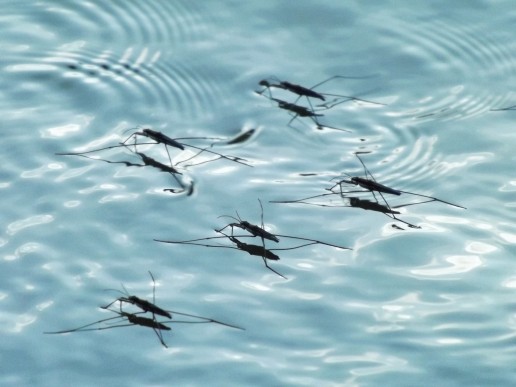Mosquitoes are easily the most disliked animal in the Florida Everglades. Their buzzing and biting makes them a nuisance to people, especially during the Everglades wet season. While taking an Everglades eco tour, you may be surprised to learn that even they play a part in maintaining their environment. But here is some information about these insects to help you understand them and prepare for them before your Everglades visit.
Some Information About Mosquitoes
Mosquitoes are easily are most abundant during the Everglades wet season from May through summer. But their numbers drop significantly during the drier winter months. The wet summer months see peak mosquito activity because both their larvae and eggs can only thrive in water.
Male mosquitoes only feed on flower nectar.
Females bite animals for protein to develop their eggs.
A nuisance only to humans, the mosquito is a vital link in the Everglades food web. By laying their eggs in the water, their larvae are a food source for fish, turtles, frogs, wading birds, and other insects.
Mosquito Safety In the Everglades
Given the abundance of mosquitoes in the Everglades, you should take precautions to avoid their bites as best you can. When you take an Everglades eco tour or any other private airboat tour at Mack’s Fish Camp, we do provide bug repellent. But here are some tips to avoid mosquito bites when you visit the Everglades.

- Stay in the sun and avoid shaded areas. Those tiny vampires love shady spots.
- Don’t breathe… heavily. Mosquitoes are attached to carbon dioxide, and the harder you breathe out, the easier it is for them to find you.
- Wear light colored clothing. In addition to being a good fashion choice for the Florida sun, mosquitoes are less attracted to them. They are drawn to darker colored clothes like navy blue, black, or red.
- Avoid dense vegetation and bodies of standing water. Mosquitoes are concentrated in these areas (vegetation) or are their breeding grounds (water).
The Everglades is Zika-Free
While they are known carriers of disease, there have been no reported cases of mosquitoes in Everglades carrying the Zika virus. In fact, after collecting over 400,000 mosquitoes in the Everglades, a team of Yale scientists found no Aedes egyptii species, the known carriers of Zika.
Though considered a pest to people, mosquitoes are a valued part of the Everglades ecosystem. If they prove too overwhelming when you visit the Mack’s Fish Camp, then maybe you should explore it on an Everglades eco tour. A mosquito may be able to fly 40 miles for a snack, but it sure can’t keep up with an airboat!
